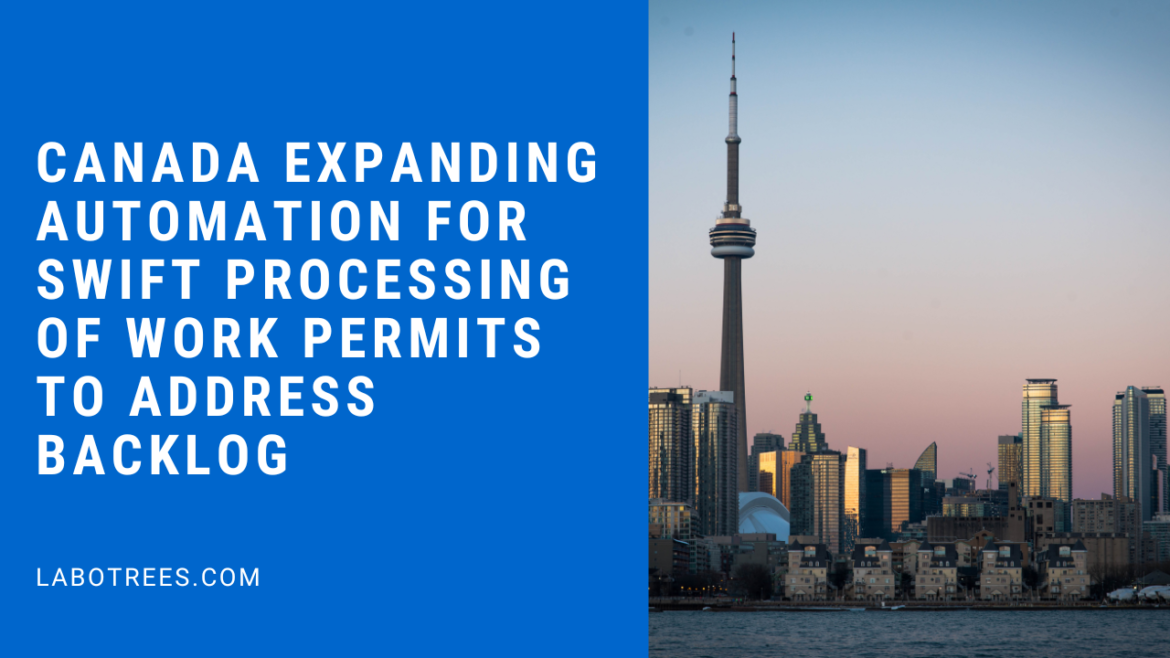In a bid to address burgeoning application backlogs, Canada’s Immigration, Refugees, and Citizenship Canada (IRCC) is amplifying its utilization of automation technologies for the efficient processing of work permit extensions and post-graduation work permits (PGWPs). This move comes as a major relief for applicants, as it promises expedited decisions for certain cases.
The IRCC will implement new automated tools to streamline the processing of work permit extensions and PGWP applications, tailoring the approach based on the complexity of each application. By leveraging these automation technologies, the IRCC aims to accelerate decision-making processes for eligible candidates, as stated in their recent press release.
The decision to embrace automation is a response to the significant backlog in processing PGWPs and work permit extensions currently faced by the Canadian immigration system.
 It’s important to note that the automation tools are primarily utilized for sorting, assigning, and evaluating applications, emphasizing that the ultimate decision to approve or deny an application rests solely with an IRCC officer.
It’s important to note that the automation tools are primarily utilized for sorting, assigning, and evaluating applications, emphasizing that the ultimate decision to approve or deny an application rests solely with an IRCC officer.
The triage function of these tools efficiently handles clerical and repetitive tasks related to sorting applications, enabling officers to concentrate on in-depth assessment and final determinations. These tools categorize applications based on rules defined by IRCC officers, aligning with the legislative and regulatory criteria of the respective program. Files are then directed to the appropriate officers for further processing, considering the office’s capabilities and the officer’s expertise.
The eligibility function of these tools is designed to swiftly identify routine applications, streamlining the processing of such cases. By evaluating an application against predefined criteria set by IRCC officers, the tools can ascertain if an applicant qualifies for a work permit extension or a PGWP. Subsequently, the file is routed to an officer to assess the applicant’s admissibility to Canada and make the final decision. Applications that do not secure automatic eligibility approval may still be manually approved following a thorough review by an officer.
 The IRCC emphasizes routine reviews of these tools to ensure they function as intended, yielding results consistent with applications subject to comprehensive human review.
The IRCC emphasizes routine reviews of these tools to ensure they function as intended, yielding results consistent with applications subject to comprehensive human review.
In recent years, India has emerged as the principal source of new permanent residents for Canada, surpassing all other countries by a considerable margin. As per the latest data from IRCC, in 2022 alone, India contributed 118,245 new permanent residents to Canada, constituting over 27% of the total of 437,610 new permanent residents during that period. The trend continues in 2023, with 96,085 Indians applying for permanent residency in the first seven months, accounting for more than 31.6% of the total 303,955 new permanent residents during this timeframe.

